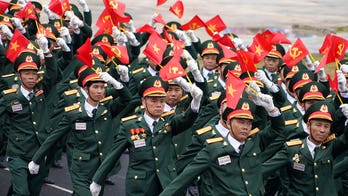During a visit to Hungary, Chinese President Xi Jinping and Prime Minister Viktor Orbán inked several agreements to deepen economic and cultural cooperation. Hungary, an EU member, is seen by Beijing as a crucial foothold for expanding its influence in the region, particularly in the automotive and lithium-ion battery sectors.

Chinese President Xi Jinping's visit to Hungary on Thursday marked a significant step in strengthening economic and cultural ties between the two nations. The visit, part of Xi's five-day European tour, culminated in the signing of several agreements aimed at deepening cooperation in various sectors.

Hungary, an EU member, is viewed by China as a strategic foothold for expanding its economic influence in the region. The signing of 18 agreements and memoranda of understanding underscores Beijing's commitment to solidifying its presence in Central and Eastern Europe.
One of the key areas of cooperation is the automotive industry. Hungary has attracted significant investments from Chinese automakers, including BYD, which plans to open its first European electric vehicle production factory in the country. This investment could transform the continent's automotive landscape.
Hungary is also poised to become a hub for lithium-ion battery manufacturing. The country hosts several Chinese EV battery plants and is undertaking a railway project that will connect it to Greece's Chinese-controlled port of Piraeus. This project will serve as an entry point for Chinese goods into Central and Eastern Europe.
During a press briefing, Hungarian Prime Minister Viktor Orbán emphasized the "continuous, uninterrupted friendship" between the two countries and pledged to foster further Chinese investments. Orbán also expressed support for China's Belt and Road Initiative, a global infrastructure development project, and called for Hungary to play a more active role in promoting China-EU relations.
However, the visit was not without its share of controversy. Budapest residents faced road closures and increased security, while groups of supporters and critics gathered to demonstrate. Incidents were reported between Tibetan protesters and Chinese nationals who attempted to prevent the display of Tibetan flags.
Despite these disruptions, the visit showcased Hungary's willingness to embrace closer ties with China. Orbán praised Beijing's role in the world's shifting balance of power and expressed Hungary's interest in expanding cooperation into areas such as nuclear energy.
China's investment in Hungary is a testament to its growing global influence. By partnering with Hungary, China is securing a strategic foothold in Europe and reinforcing its position as a key player in the global economy.
The agreements signed during Xi's visit pave the way for deeper economic integration between the two countries and highlight the increasing significance of China in reshaping the European economic landscape. Hungary's role as a bridge between East and West will likely continue to grow in the years to come.










